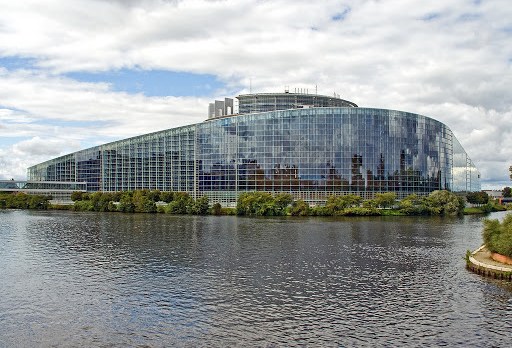Pope Francis will visit the seat of the European Parliament in Strasbourg, France, on Tuesday, a one-day visit that will include an address to the parliament as well as the Council of Europe.
But with this visit, is the Church interfering in the political life of States — and the European Union — or is the Pope’s visit an opportunity for encounter and dialogue?
German Cardinal Reinhard Marx, president of the Commission of the Bishops’ Conferences of the European Community (COMECE), has underlined that Pope Francis, through his visit to the European Parliament, “is signaling his support and encouragement of the pursuit of the integration and unity of Europe.” The dialogue between religious confessions and regarding religious liberty play an important role in this process.
Aleteia asked Dr. Pasquale Annicchino, a research fellow for the Robert Schuman Centre for Advanced Studies at the European University Institute in Florence, to help us understand several aspects of EU policy related to religious freedom, and the impact of the Pope’s visit may have for this important Institution.
What provisions on religious liberty have been adopted by the European Union?
Sometimes we tend to underestimate the impact that EU law has on the religious phenomenon. However, reality tells us that despite certain attempts to prevent the norms of EU law from impacting at a national level, more and more, decisions in Brussels and the European Court of Justice in Luxembourg are having a significant impact on domestic laws. Just think of the anti-discrimination law or the recent ruling on the legal definition of the term “religious persecution.”
What role does religious liberty have in the EU’s foreign policy?
This matter has been accelerating since June 2013, with the adoption of the guidelines on the promotion and protection of freedom of religion and conscience in the EU’s foreign affairs. Moreover, during her hearing in the European Parliament, Federica Mogherini confirmed that this will be one of her political priorities. At this point, we just have to see if the rhetoric is actually followed with concrete policies.
A few weeks ago, a report was released which is prepared every two years on the issue of religious freedom in the world (by Aid to the Church in Need). It shows that the majority of countries restrict their people’s rights, not only in countries traditionally hostile to religion (China) or pluralism (UAE), but even in some Western countries. What do you think about this? Is it a problem that can be addressed through new laws, or is it more of a cultural issue?
All major international reports on the subject indicate a trend of increasing restrictions on religion in the public sphere and a parallel increase in social hostility toward religion. In many cases these two trends result in restrictions on the right to religious freedom. The promotion of norms favorable to the right to religious freedom can certainly help. At the same time it is necessary, especially in Europe and in some particularly secularized regions, that political leaders return to a proper understanding of the significance of the religious factor. As the report issued by Aid to the Church in Need highlights, religious illiteracy of Western politicians is a major barrier to understanding political development in the rest of the world.
Federica Mogherini, the new High Representative of the European Union for Foreign Affairs, seems to want to change the attitude of the EU about ISIS and make Brussels far more active in terms of the containment of the Islamic State. She also seems to have signaled an interest in the issue of religious liberty in the world. Can you confirm this? What do you think?
Regarding the issue of religious freedom: as I said previously, Mogherini has emphasized her interest in the matter. We will have to see what she manages to do. As to the events related to the violence carried out by the Islamic State, the European Union can make an effort at the diplomatic level to effect a minimal coordination between the decisions of national registries. However, to date, they remain the nerve centers that decide the issue.
Should Pope Francis’ visit to the European Parliament be viewed as the visit of a religious leader or of a head of state?
One could formally sustain the latter view, but I think the invitation was extended to him primarily as a religious leader. Martin Schulz was always keen on the institutions of the European Union engaging in dialogue with religions, much more so than Barroso when he was President of the European Commission. As Cardinal Marx, President of COMECE, pointed out, the Pope’s visit is particularly significant because it is taking place before an official visit to one of the Member States.
The positions of the Church on important issues such as life, the economy, family, etc. are decidedly different than those increasingly held by the EU. What is the relationship between the EU and the Church? What impact can the Pope’s visit have, from a point of view of guidance on these issues?
I would say that there has not always been an explicit conflict between the positions of the European Union as such, and those of the Church. Increasingly, the positions of the EU institutions simply reflect modernity (or post-modernity). The Church — through the COMECE — carries out her legitimate work in Brussels through dialogue on all the issues, by expressing her point of view. Pope Francis’s visit could certainly have an effect by reviving the debate, especially on issues related to society and the economy. His speech could also definitely touch upon broader issues related to the increasing secularization of Europe.

